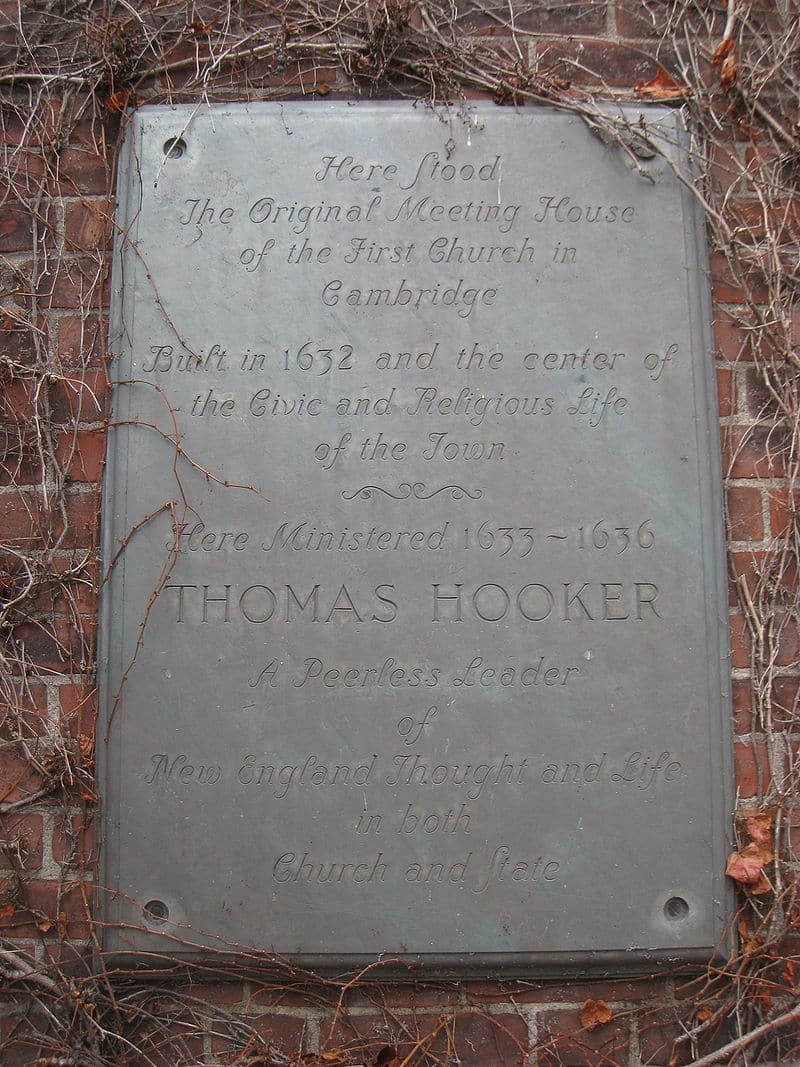So you want to learn interesting Thomas Hooker facts? Hooker was an important player in early Colonial America.

Thomas Hooker (July 5, 1586 – July 7, 1647) was a prominent Puritan colonial leader who founded the Connecticut Colony after dissenting with Puritan leaders in Massachusetts Bay. He was known as an outstanding speaker and a leader of universal Christian suffrage. He was called the "Father of Connecticut" and was an influential figure in the development of the New England Colonies.
Jump to:
Thomas Hooker Facts: Early Life
- Thomas Hooker was likely born at Marefield or Birstall, Leicestershire, and went to school at Market Bosworth.
- In March 1604, he entered Queen's College, Cambridge, as a scholarship student. He received his Bachelor of Arts from Emmanuel College, Cambridge, in 1608, continuing there to earn his Master of Arts in 1611.
- He met and married Susannah Garbrand.
- Around 1626, Hooker became a lecturer or preacher at what was then St. Mary's parish church.
- In 1629 Archbishop William Laud suppressed church lecturers, and Hooker was forced to retire to Little Baddow. His leadership of Puritan sympathizers brought him a summons to the Court of High Commission. Forfeiting his bond, Hooker fled to Rotterdam and, for a time, considered a position in the English reformed church in Amsterdam as assistant to its senior pastor, the Rev. John Paget. From Holland, after a final clandestine trip to England to put his affairs in order, he immigrated to the Massachusetts Bay Colony aboard the Griffin.
Thomas Hooker Facts: Massachusetts to Connecticut
- Hooker arrived in Boston and settled in Newtown, where he became the pastor of the earliest established church there, known to its members as "The Church of Christ at Cambridge." His congregation, some of whom may have been members of congregations he had served in England, became known as "Mr. Hooker's Company".
- Voting in Massachusetts was limited to freemen, individuals who had been formally admitted to their church after a detailed interrogation of their religious views and experiences. Hooker disagreed with this limitation of suffrage, putting him at odds with the influential pastor John Cotton. Owing to his conflict with Cotton and discontented with the suppression of Puritan suffrage and at odds with the colony leadership, Hooker and the Rev. Samuel Stone led a group of about 100 who, in 1636, founded the settlement of Hartford, named for Stone’s place of birth: Hertford, in England.
- This led to the founding of the Connecticut Colony. Hooker became more active in politics in Connecticut. The General Court representing Wethersfield, Windsor, and Hartford met at the end of May 1638 to frame a written constitution in order to establish a government for the Commonwealth.
- Hooker preached the opening sermon at First Church of Hartford on May 31, declaring that "the foundation of authority is laid in the free consent of the people."
- On January 14, 1639, freemen from these three settlements ratified the "Fundamental Orders of Connecticut." It marked the beginnings of American democracy.
Thomas Hooker Facts: Death
- The Rev. Hooker died during an "epidemical sickness" in 1647 at the age of 61. The location of his grave is unknown, although he is believed to be buried in Hartford's Ancient Burying Ground.
- Because there was no known portrait of him, the statue of him that stands nearby, in front of Hartford’s Old State House, was sculpted from the likenesses of his descendants.

